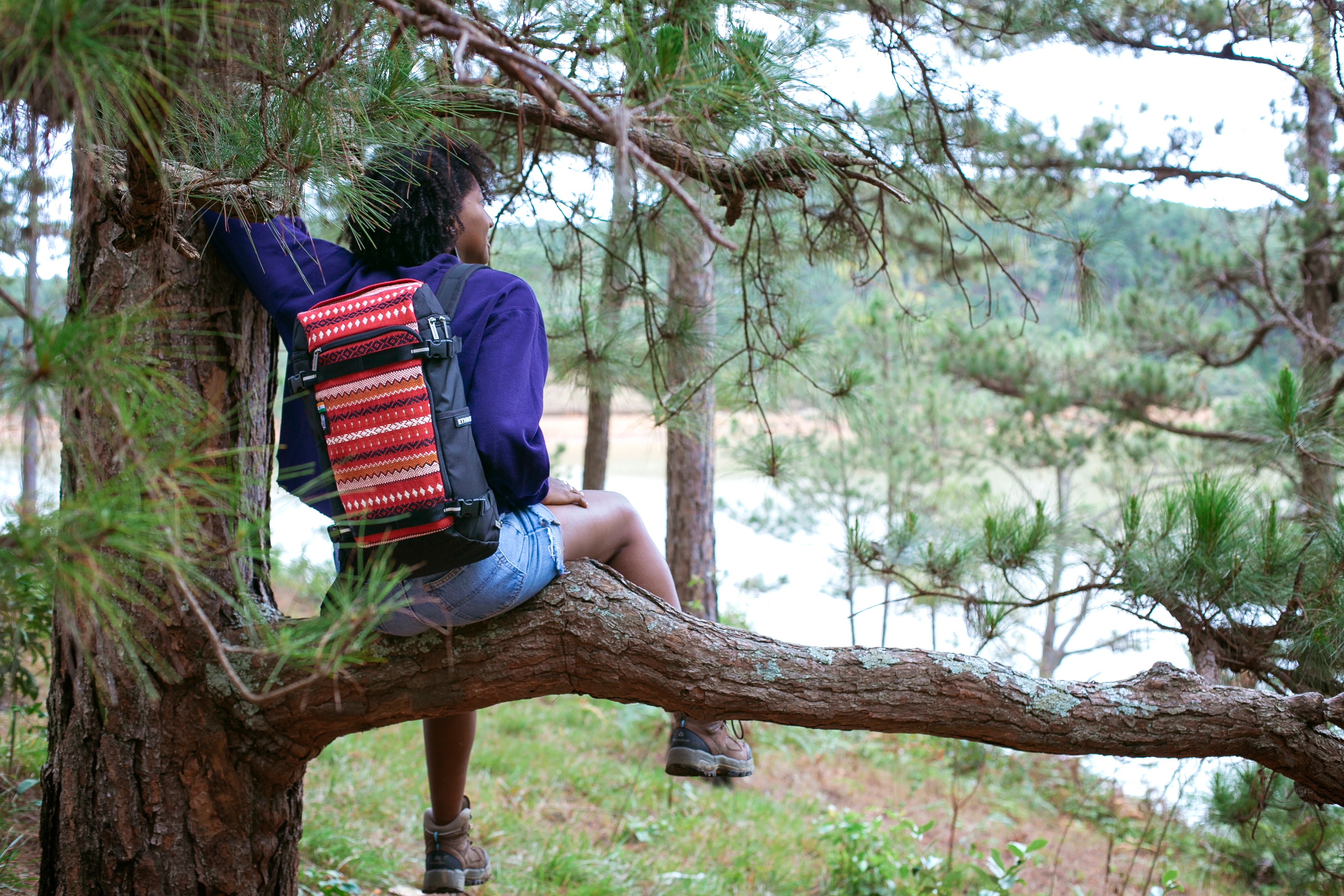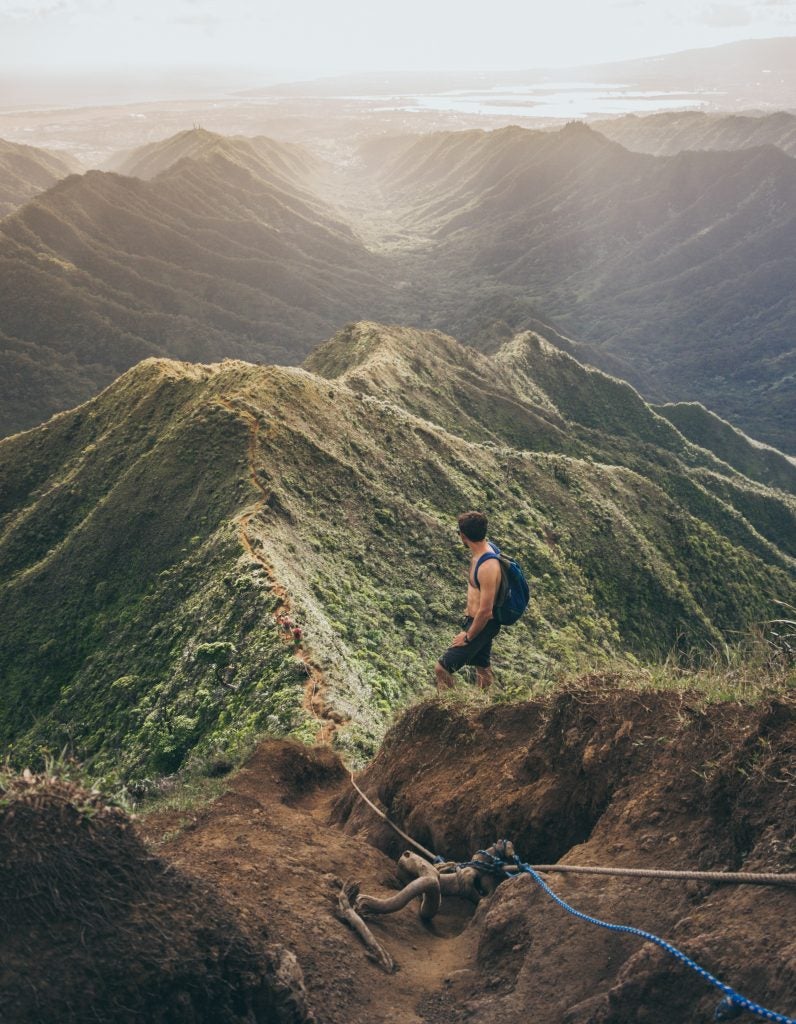More people than ever are turning to outdoor recreation for their leisure time. That also means more traffic through delicate ecosystems, more trail trash, and more car emissions en route to camping destinations. Thankfully, there’s also increasing awareness of our impact on the places we love, and a rising demand for outdoor gear made with eco-friendly materials.
Almost half of the U.S. population—some 144.4 million Americans—participated in an outdoor activity at least once in 2016, according to the Outdoor Participation Report. That adds up to a big chunk of the country’s economy. This spring, the federal Bureau of Economic Analysis estimated that the outdoor industry now makes up a whopping 2% of the entire U.S. Gross Domestic Product, or about $373.7 billion each year.
Those numbers hint at the scale of outdoor industry manufacturing, and just how many workers world wide are busy putting together outdoor gear like tents, boots, harnesses, helmets, and backpacks. Sustainability, after all, isn’t just a matter of how much stuff is made, or what it’s made from, but the working conditions and wages of the factory workers involved in production. As the outdoor industry grows, more consumers and companies are being more mindful, not only of gear’s technical specs, but of the ecological and ethical impact as well.
https://www.instagram.com/p/Bh-Ass4A6og/?utm_source=ig_embed
Companies with Eco-Friendly Outdoor Gear
That’s why it’s wonderful to see companies that are paying attention to that impact. Klean Kanteen, for example, reduces waste by offering reusable products as an alternative to single-use containers. They also refined their supply chain after the company realized that, even though air freight accounted for only 1% of their distribution model, it increased the company’s carbon footprint by 20%.
Another heavy hitter in the industry, known to be dedicated to sustainability, is Patagonia. The company donates money to environmental causes, promotes a “repair, reuse, and recycle” program to make gear last longer, and works with suppliers to ensure humane working conditions. Patagonia even conducted a study on the impact of fibers shed by their synthetic jackets on the world’s oceans, showing us all that no aspect of the company is too small for scrutiny.
Osprey has committed to creating travel, technical, and hydration packs that contain absolutely no BPA, triclosan, or phthalates. When outdoor gear is shipped, the company uses recycled and/or recyclable materials. They have even committed to sourcing the materials they do use sustainably, and they maintain fair working conditions for employees throughout the line of production.
Cotopaxi is yet another outdoor gear company making big changes to incorporate eco-friendly methods into their production practices. Leftover product scraps are not thrown out, but used to make even more gear, and llama fiber is used for jacket insulation in place of other, less eco-friendly, methods that are popular within the industry. Cotopaxi also ensures that all production of their gear is done through fair working conditions for everyone involved in the process.
Making a change in terms of how down material for insulated jackets is sourced has also become a top priority for Columbia Sportswear. They have incorporated the Responsible Down Standard (RDS) into their production. RDS is a group that has come together to trace the down material supply chain, ensuring that no inhumane practices are taking place throughout. Columbia Sportswear only uses RDS certified down in their outdoor gear. You can learn more about RDS and other companies who adhere to its standards here.
Even small companies know that the littlest details count. Ethnotek’s eco backpacks, for example, are inspired by textile traditions in South America, Africa, and Asia. They help small villages retain talented workers who might otherwise leave for manufacturing jobs in bigger cities instead of keeping these unique weaving patterns alive. The company didn’t stop there – their zippers, clasps, and straps are made to Blue Sign Certification and REACH standards, without chemicals like phthalate compounds and with sustainable supply chain models. Even the company’s packaging and hangtags meet A-01 standards for toxicity compliance. The company is also committed to fair wages and benefits far beyond the minimum wage in Vietnam, where the Ethnotek workshop is located.
These companies are just a few examples of how the outdoor industry is working to make impactful changes — there are too many companies contributing to increased sustainability to list them all here, which is awesome. Nevertheless, it’s important to celebrate the commitment more and more companies are making to ensure that their outdoor gear doesn’t negatively impact the wild spaces that we all love.
You can win free gear from Ethnotek and 19 other outdoor brands by reviewing campgrounds on The Dyrt. Share past camping experiences, photos, and videos to earn points towards monthly prizes in The 2018 Great Camping Giveaway!
The Dyrt is the only camping app with all of the public and private campgrounds, RV parks, and free camping locations in the United States. Download now for iOS and Android.Popular Articles:
Articles on The Dyrt Magazine may contain links to affiliate websites. The Dyrt receives an affiliate commission for any purchases made by using such links at no additional cost to you the consumer.



